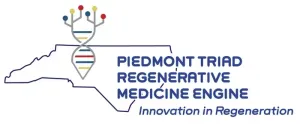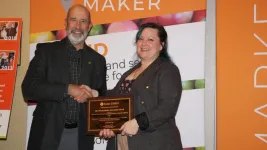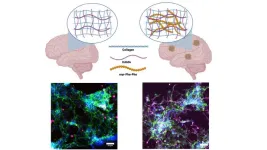(Press-News.org) Late detection biggest worry in relation to cancer diagnosis, with 55% of people wanting to see future advances in early cancer detection
Public overwhelmingly support use of AI to tackle cancer
43% of people recognise major impact universities can have on reducing deaths from cancer
Cambridge University partnering with NHS to build revolutionary new Cambridge Cancer Research Hospital
Two-thirds of the public say they are very or somewhat worried about being told they have the disease – higher than for any other medical condition, including dementia and having a heart attack – according to polling released today.
The polling, carried out among 2,000 UK adults by Public First on behalf of the University of Cambridge, highlights the concerns that people have over a cancer diagnosis. It suggests that late diagnosis – too late to treat their cancer – is the biggest concern in relation to a cancer diagnosis (70%) followed by the impact on one’s family and those around them (52%).
When asked which transformative development they would like to see in the future – including eradicating diseases such as malaria, self-driving cars becoming commonplace, and genetically engineered crops enabling us to end famine – 55% of respondents chose “being able to detect and treat cancer early enough so that no-one dies of the disease”. Only eliminating poverty came anywhere close, with 23% of respondents.
The University of Cambridge and its partner Cambridge University Hospitals NHS Foundation Trust (CUH) are working to build Cambridge Cancer Research Hospital, a revolutionary new type of hospital that promises to change the story of cancer. The specialist cancer facility is bringing world-leading scientists within the walls of a new NHS hospital – for the first time – to detect cancer earlier and deliver personalised healthcare and precision cancer medicine to patients.
“Cancer affects one in two of us and understandably induces fear in patients and their families,” said Professor Richard Gilbertson, Director of the Cancer Research UK Cambridge Centre at the University and Research Lead for Cambridge Cancer Research Hospital. "People are worried that treatments won’t work or that the side-effects will be terrible, but also what their diagnosis will mean to their family.
“At Cambridge we believe it’s possible to imagine a world where there is no longer a fear of cancer. It’s an ambitious goal that we – along with many other researchers around the world – are working hard to realise.”
When asked what would concern them most about receiving a cancer diagnosis, the most commonly selected worry was that the cancer would be detected too late to treat (70%). 52% of respondents were concerned about the impact on their family or those around them, 41% about getting access to the right treatment, and 36% about the side-effects of treatments.
Asked what would make them less afraid of being diagnosed with cancer, 61% replied “Knowing that the form of cancer I have is treatable”. Highlighting once again the importance of early detection, over half of respondents (51%) said “Knowing we are better at catching cancer early enough to treat”.
“Outcomes can be completely transformed – better survival and less invasive treatments – if the cancer is diagnosed early enough,” said Professor Rebecca Fitzgerald, Director of the Li Ka Shing Early Cancer Institute at the University of Cambridge.
“That’s why a lot of our focus now is on understanding cancer at its very earliest stage – years before an individual will develop any symptoms. That way, it may even be possible to prevent the disease in the first place, or at least catch it when it can be treated easily.”
Knowing that a lot of people – including organisations such as the University of Cambridge – are researching how we prevent, diagnose and treat cancer is reassuring, the poll suggests. A third of respondents (32%) said this would make them less afraid of a cancer diagnosis. 43% of respondents believe cancer research at universities will have a big impact on reducing deaths from cancer (though perhaps unsurprisingly, 64% thought the biggest impact on reducing cancer deaths would come by reducing NHS waiting times).
rofessor Deborah Prentice, the Vice-Chancellor of the University of Cambridge, said: “Cambridge is really leading the way on transforming our understanding of cancer and how we can prevent it and treat it. This brilliant work will save and transform lives locally, nationally, and around the world, such as being able to sequence a tumour’s DNA at speed right through to developing revolutionary new cancer drugs such as olaparib. It is world-leading work which makes me extremely proud.”
The public were asked their views on the use of artificial intelligence (AI) to improve diagnosis and treatment of cancer. An overwhelming majority were in favour of its application, with just 8% saying we shouldn’t use AI for cancer diagnosis and treatment. 55% thought it was acceptable to use AI to speed up research into new treatments, 47% to help a doctor diagnose their cancer and 41% to help their doctor decide which treatment would work best.
At the University of Cambridge, scientists are developing AI tools with the potential to transform cancer treatments, by speeding up diagnosis, personalising therapy, and reducing costs. As part of this work, researchers are using AI to predict how patients will respond to a particular treatment before they receive it, allow them to start treatment sooner, target hard-to-treat cancers, and enable screening of cancers that at the moment would otherwise be prohibitively expensive.
When presented with a number of undesirable future events, a cancer diagnosis was second only to the death of a close relative in terms of being most worrying (64% verses 72%) – higher than nuclear war (56%), terrorism (53%) and being a victim of crime (52%). Surprisingly, older age groups were significantly less likely to say they were “very worried” about cancer compared to younger age groups – 14% of over 65s compared to 26% of 18-24 years olds and 29% of 25-34 year olds.
The University of Cambridge is currently fundraising for the Cambridge Cancer Research Hospital. To support this, it is today launching a month-long focus on its cancer research, including a look at the new hospital, meeting researchers investigating the earliest stages of cancer, finding out how AI is helping in the fight against the disease, and meeting some of the patients who are playing a key role in groundbreaking cancer research.
A copy of the full survey is available at: https://www.publicfirst.co.uk/new-polling-for-the-university-of-cambridge.html
END
Cancer is the biggest health concern among the public, poll reveals
2024-07-15
ELSE PRESS RELEASES FROM THIS DATE:
Doctors suffering burnout need compassion not blame, says top GP
2024-07-15
Doctors, nurses and other healthcare staff suffering burnout should be shown compassion and not blamed for being unwell, according to a leading GP.
Clare Gerada says employers often treat physicians as ‘naughty schoolchildren’ when they go sick or suffer mental health problems. Professor Dame Gerada, past president of the Royal College of General Practitioners (RCGP), is calling for more comprehensive guidance that focuses on ‘kindness’ and ‘sensitivity’.
The doctor, who helped found mental health charity, Doctors in Distress, addresses the need for major reform in a new book aimed at reforming care for doctors and nurses ...
Study on post-COVID-19 condition: Which factors have an impact on the risk
2024-07-14
Early on during the coronavirus pandemic, there were reports of cases of persistent post-infection symptoms. The World Health Organization (WHO) refers to such new or persistent symptoms twelve weeks after a corona infection that cannot be explained by other causes as a post-COVID-19 condition. In a recent study, scientists led by the University Medicine Halle evaluated the information from 109,707 participants in the German National Cohort (NAKO Gesundheitsstudie) on their self-reported health status with respect to post-infection symptoms. The survey took place in autumn 2022, in retrospect of the pandemic.
At the time of the survey, more than 80 percent of respondents had ...
Artificial intelligence outperforms clinical tests at predicting progress of Alzheimer’s disease
2024-07-13
Cambridge scientists have developed an artificially-intelligent tool capable of predicting in four cases out of five whether people with early signs of dementia will remain stable or develop Alzheimer’s disease.
The team say this new approach could reduce the need for invasive and costly diagnostic tests while improving treatment outcomes early when interventions such as lifestyle changes or new medicines may have a chance to work best.
Dementia poses a significant global healthcare challenge, affecting over 55 million people worldwide ...
ReMDO announces inaugural Piedmont Triad Regenerative Medicine Engine Ecosystem Summit in Winston-Salem, North Carolina
2024-07-12
Winston-Salem, North Carolina – July 12, 2024 - The RegenMed Development Organization (ReMDO) invites researchers, industry and academia to the inaugural Piedmont Triad Regenerative Medicine Engine Ecosystem Summit (The Summit) on Monday, August 12th in Winston-Salem, North Carolina. Registration is open to new and current partners, with required onboarding for prospective organizations to be completed by August 12. The summit will consist of speaker sessions, discussion panels, breakouts, and networking events with complete details ...
HarvestHub app tackles supply chain, food insecurity issues
2024-07-12
The COVID-19 pandemic infiltrated almost every aspect of society and life in 2020, even in ways people wouldn’t have immediately expected. Stores that typically have no problem stocking shelves were struggling to keep pace with the sudden demand for cleaning supplies along with everything from toilet paper to Sriracha chili sauce.
While these issues aren’t as devastating as the larger health ramifications, they did shed new light on supply chain weaknesses and how that system adapts to rapid and vast market shifts. Factory closures ...
Mathematics outreach program awarded Dolciani grant
2024-07-12
Two years after launching a new mathematics outreach program, a team of Texas A&M University professors has been awarded a Dolciani Mathematics Enrichment Grant to support their program's efforts to promote math enrichment for high school students.
The Program for Research in Mathematics (PReMa) was established in 2022 by four members of Texas A&M’s Department of Mathematics: Dr. Sherry Gong, Dr. Wencai Liu, Dr. Kun Wang and Dr. Zhizhang Xie. The program, directed by Wang, targets high school students living in Texas and neighboring states. Designed to cultivate a deep appreciation and understanding of advanced ...
Groundbreaking study reveals insights into Alzheimer's disease mechanisms through novel hydrogel matrix
2024-07-12
Los Angeles, California - May 20, 2024 - Researchers at the Terasaki Institute for Biomedical Innovation (TIBI) have unveiled a pioneering study shedding light on the intricate mechanisms underlying Alzheimer's disease (AD). The study, titled "Effects of amyloid-β-mimicking peptide hydrogel matrix on neuronal progenitor cell phenotype," represents a significant leap forward in understanding the interplay between amyloid-like structures and neuronal cells.
Led by Natashya Falcone and co-first authors Tess Grett Mathes and Mahsa Monirizad, the research team delved into the realm of self-assembling ...
Study examines urban forests across the United States
2024-07-12
In recent years, tree-planting campaigns have been underway in the United States, especially in cities, as part of climate mitigation efforts.
Urban forests can help improve air quality, generate cooling effects, and provide green spaces for outdoor recreation while also serving as an ecological habitat.
Just last year, the U.S. Forest Service announced a $1 billion campaign to expand access to trees and green spaces throughout the country, including in cities.
But a new Dartmouth-led study finds that some areas within urban forests in the U.S., may be more capable than trees growing around city home lawns in adapting to a warmer climate.
The findings are published ...
2023 Rolling Hills Estates landslide likely began the winter before
2024-07-12
Key takeaways
Landslides triggered by intense rainfall can sometimes be predicted along with incoming storms, but dry-season landslides often take people by surprise.
The July 2023 Rolling Hills Estates landslide that destroyed 12 homes seemed to come out of nowhere, but new research shows it began as early as December 2022.
Researchers are developing a database that will enable scientists to plug in new data to monitor potential landslides in real time and possibly predict them.
Californians are familiar with landslides that occur around storms, when saturated soil and ...
Rutgers researchers spot potential hazard with private well water treatment
2024-07-12
Systems designed to treat arsenic in private well water may be malfunctioning and endangering the health of people who count on them to keep their water safe, according to Rutgers researchers.
Megan Rockafellow-Baldoni, an assistant professor of environmental and occupational health and justice at the Rutgers School of Public Health, together with co-authors including Rutgers alum Steven Spayd, a retired research scientist formerly with the New Jersey Department of Environmental Protection, tested the water of 62 New Jersey homes with whole-house arsenic-removing water treatment systems. Their study was ...


